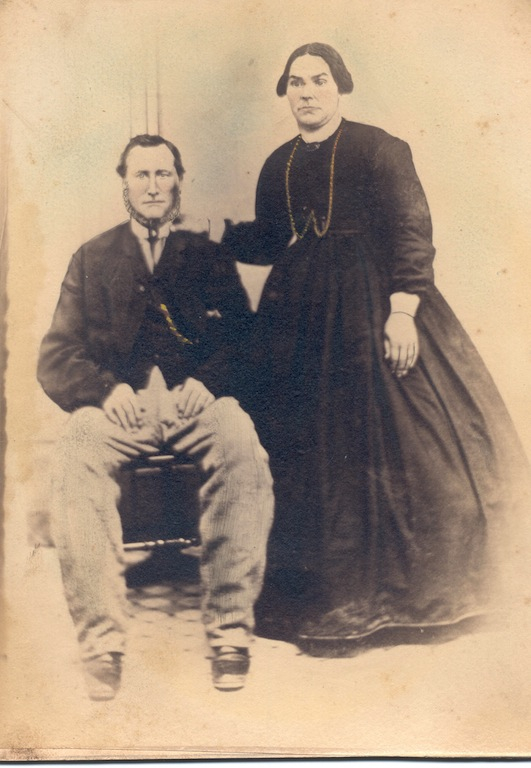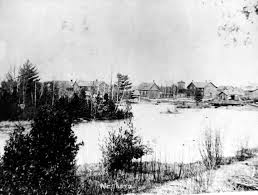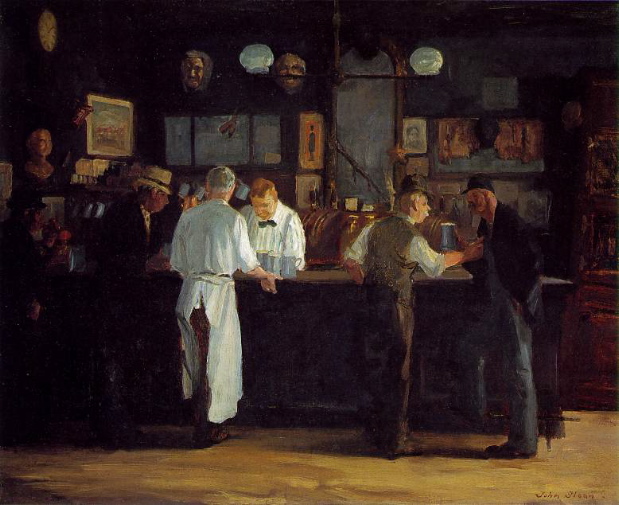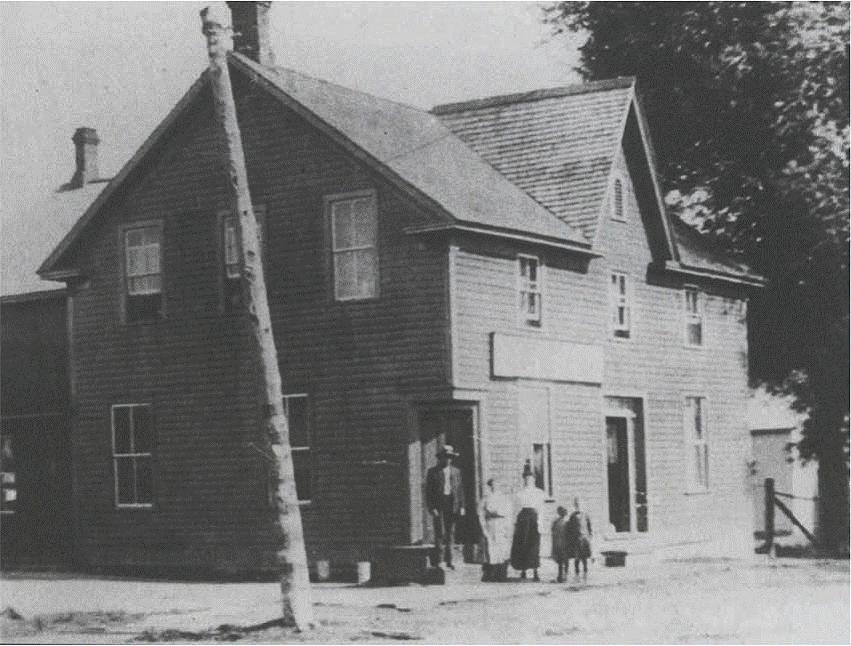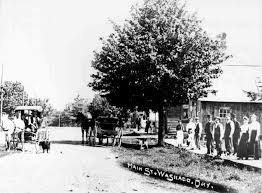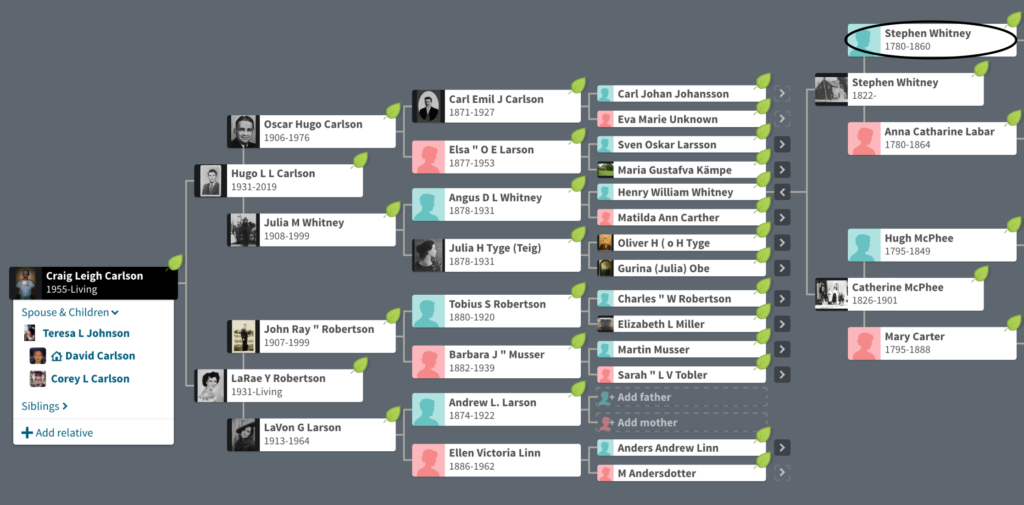Stephen Whitney was born in 1822 in Port Credit, Peel, Ontario, Canada to Stephen Whitney, Sr., and Anna Catharine (Labar) Whitney. He was married to Catherine McPhee in the early 1840s. They had six children: Henry William (b. December 12, 1845), Hugh Angus (b. November 14, 1846), Mary Ann (b. 1849), Matilda (b. 1855), Abraham (b. November 13, 1861), and John (b. September 16, 1864. Stephen was a respected farmer in Simcoe County, Ontario through the 1870s.
One November day in 1874, the lives of the Whitney family changed drastically forever. Stephen was 52 years old when he attended an auction at a tavern called Washago House in the wild frontier town of Washago, Ontario. Free whiskey was served to enliven the bidding.
Another attendee at the auction (and consumer of free liquor) was the “town drunk,” notorious for his rowdiness and quarrelsome nature. The man used steel knuckles to accost Stephen and other attendees, and they engaged in hand-to-hand combat for several brief periods.
When the drunk had enough action, he left the tavern. Shortly thereafter, Stephen, who was also intoxicated, went outside the tavern and confronted the man. Stephen withdrew a revolver from his pocket and, at four paces, fatally shot the man squarely in the head.
The constables located in nearby Orillia were sent telegrams advising that fighting and a shooting had occurred in Washago. Six hours later, at one o’clock the following morning, two constables arrived on horseback. The auction was over, and most of its attendees had dispersed. Those that remained were too drunk to be credible sources of information.
The constables and the coroner scheduled an inquest for early that morning, and before dawn rounded up a dozen or so witnesses to the previous night’s fight and shooting, including Stephen. Early witnesses recalled the hand-to-hand fighting. Then, a short lapse in the guarding of exits from the tavern (where the inquest was being held) allowed Stephen to slip out through one of the doors.
Further witness testimony made it clear that he was the person with the revolver, and constables began an immediate search for the missing Stephen. His respectable community stature may have aided his escape – he was never found.
A verdict of willful murder was returned against Stephen, but he was never apprehended. No information exists regarding his path of escape or final destination.
Stephen’s 2nd great-grandson George Patterson corresponded with Larry Cotton (author of Whiskey and Wickedness: Simcoe County, Ontario), who writes:
“In going through my scrap books that I have collected for this project over the last 25 years …. I found a great article on Whitney, which I’d like to share. The article was in the Barrie Northern Advance newspaper dated May 6, 1875 … and copied from an earlier article that originally was in the Orillia Expositor newspaper.
‘Whitney, the Washago murderer, has been lately seen down in Louisiana by a person of the name of Bowes, well known here. He was not disguised in the least. He wore a light suit and a plug hat, and at the time was in a great hurry going somewhere. However, he recognized Bowes, spoke very pleasantly and cordially to him, and invited him to come and see him, and excused himself on the ground of pressing business just then, but would have a chat with him if he would be so good as to call on him.’
A gentleman who was intimately acquainted with Whitney remarked …
‘I would not like to be the man to go and arrest Whitney, if he is down there. When in the employ of the Bell Ewart Company, I have often had occasion to go down to Oakley Township, a distance of about 20 miles, to look after some timber affairs, and very often I was accompanied by Whitney, when he gave many proofs of his deadly precision with the revolver. I have often seen him taking down a partridge on the wing, and often he has actually shot the head off with a pistol bullet. He could, in fact, fill a better game-bag with his revolver than I could with a double barrel, though I was no mean sportsman. But it is not himself along from whom one would have most to fear in case of arrest in that wild and lawless country. The gravest fear might be entertained of opposition from the outlaws with whom he might have become associated and acquainted. These men … are ready for any deed of lawlessness or vengeance where either themselves or a comrade is concerned and the crack of the revolver, or the slash of bowie knife, is as familiar to them as their own voice…’
Belle Ewart was a sawmilling community in Innisfil Township (now the Town of Innisfil) just below the City of Barrie on the west shore of Lake Simcoe. Oakley Township is in the Muskoka District just north of Washago.”

